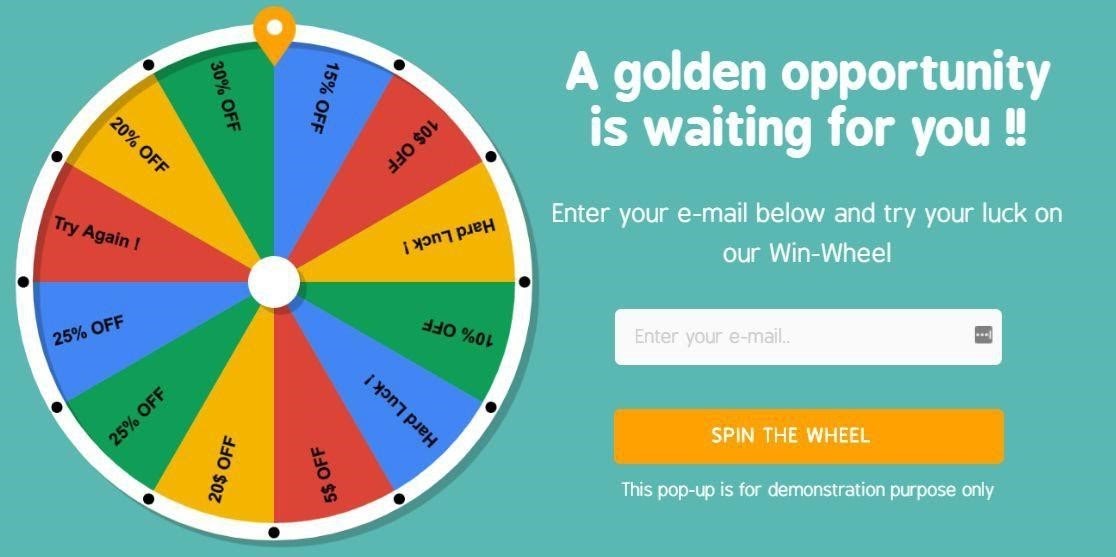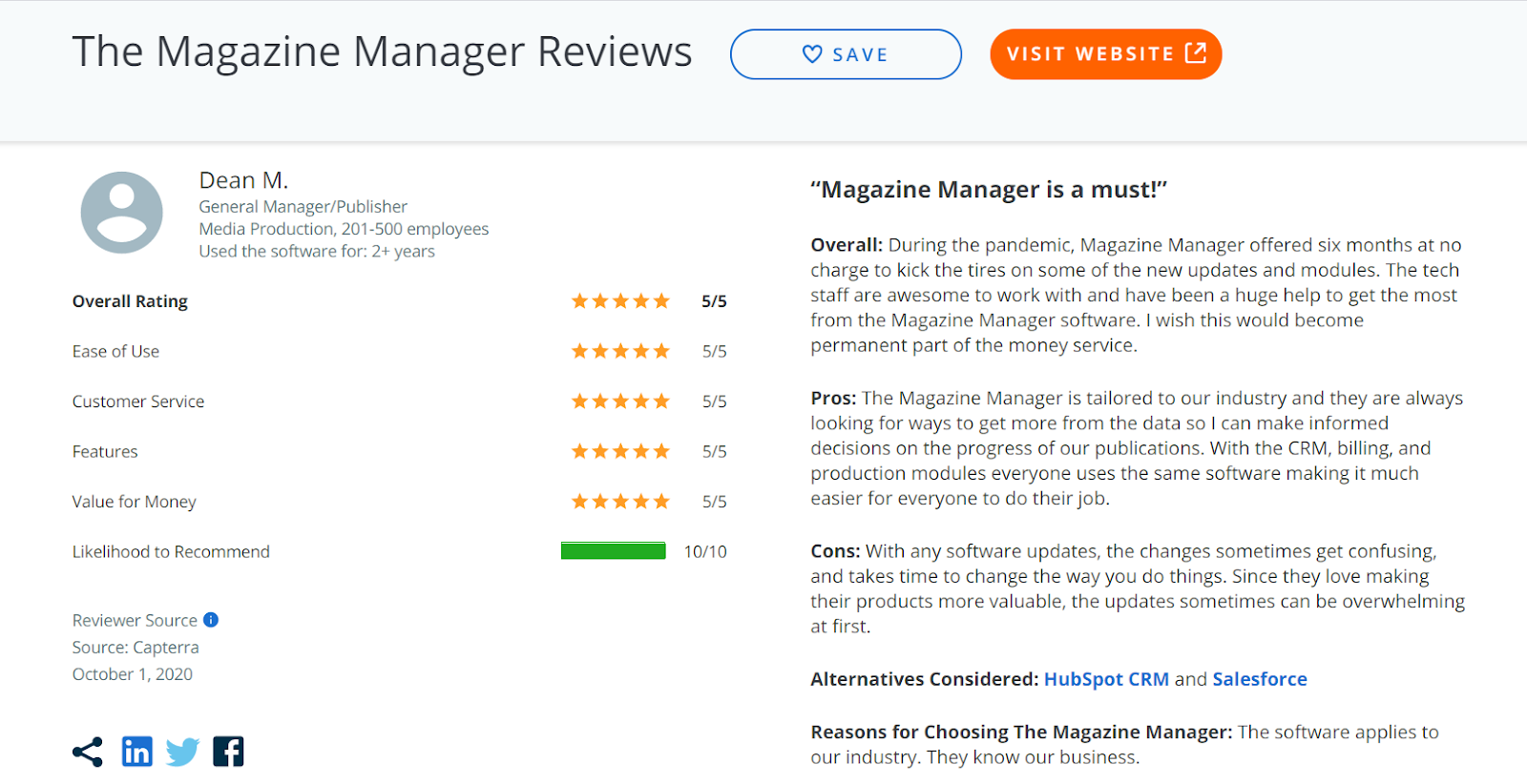How To Create A Sales Database
Developing and leveraging your customer database is vital to digital marketing teams.
A growing database of customers means more potential engagement, buying decisions, and more. The information you get from your customers is also incredibly beneficial to guiding your sales and marketing strategies for lead generation.
Knowing so much about your customers allows you to properly use those insights to create and adjust strategies.
If you need a refresher on how to build and how to leverage your customer database, Mirabel's Marketing Manager has a few ideas.
How to Build Your Customer Database
If your database needs a boost, lead generation should be your top priority. Here are a few strategies and ways to build your CRM database.
1. Point of sale.The most common time to gather data on your customers is at the point of sale. A lot of valuable information can be gathered at this time of the transaction, and it's potentially the easiest time to ask for details.
2. Web forms.Using a form for gated content is fundamental. It's important to ensure you install and optimize web forms on your website.
- Use clear and compelling calls to action (CTAs) to clarify what users will get when they fill out those forms. It could be for a sign-up for newsletters, request for a free trial, and so on.
- A/B test your web forms. All web forms are not created equal, and you can dramatically improve your conversion rate by testing variations of your forms. (Our blog, 11 Ways to Create Effective Landing Page Forms, can help.)
- Optimize all forms for mobile. More web traffic comes from mobile than desktop, so it's important to optimize all forms for cell phones and tablets.
- Ask for the bare minimum. People are not going to give away unnecessary personal information. That's why you should create just enough fields on your forms to get what you need. Most forms ask for the first and last name and email address. Some ask for a bit more, such as company or company size. Any more than this and you likely risk losing a potential customer.
- Use autofill. Autofill is a feature that allows users to skip typing on the keyboard, which comes in handy when two forms ask for the same information. It speeds up the user experience, making them more likely to fill out the full form.
3. Content marketing. More than ever, website visitors are inundated with digital marketing and advertising. It's common practice to nurture leads into customers using content marketing strategies.
By creating knowledgeable, relevant, and helpful content, you can build a customer database. Gate content with a form, so users must enter their information in exchange for this content.
4. Email marketing.When you receive an email address, keep them engaged with newsletters and product or service updates. These email analytics (open, click-through, and spam rates; links clicked) give you more information to add to a customer profile.
Email acquisition is critical. Once you get an email address, the entire process of digitally linking, communicating, and gathering data becomes easier. Check out these smart ways to utilize email marketing and increase engagement:
- Giveaways. A giveaway or contest is a great way to keep email users engaged. It's also a key strategy to drive sign-ups and build databases. For example, "Refer your friends and be entered for the chance to win!"
- Coupons/discounts. Most users are OK with giving up their email address in exchange for monetary savings, especially repetitive sales and membership discounts.
- Exclusive access. Scarcity is a motivating factor in human psychology. As soon as a user knows that what you're offering is rare, they want it. Use that aspect of human nature to your advantage.
- Competitions.People love to win, and that's why gamification does so well in email marketing. Gamification triggers a positive response in website visitors. It's a next level, user-first approach to marketing that employs competition, engagement, and/or awards.Gamification improves user engagement and can be used to build or grow a customer database. A common example is the Wheel of Fortune (www.wheeloffortune.com) popup. Upon entering a website, a spin-the-wheel popup is activated. Website visitors can then click to spin the wheel for the chance to win a special offer.Rewards on the "wheel" might include incentives like free shipping, trial-size products, and a small discount. The wheel will also likely include a "try again" or "one extra/free spin" option to keep visitors engaged.Other common examples of gamification widgets include digital scratch-offs and virtual slot machines.

To redeem the reward, visitors will opt-in by entering their email addresses, automatically building your list.

5. Social media. Generally, social media is great. These internet platforms are based around voluntarily sharing information about yourself, your interests, and "friends" (aka more potential customers).
- LinkedIn. This is a goldmine of information on your prospects and the organizations they work at. Leverage this social media tool to build a clearer picture of how the contact you have a relationship with fits within the larger picture for their organization in a B2B sale.
- Facebook (www.facebook.com). This is the world's most popular social media site with almost 4 billion profiles. If your demographic uses Facebook more than younger social media sites, this platform may be your Holy Grail of information for potential customers.Facebook Ads are also a great lead generation tool. They're still inexpensive for being on the most valuable website in the world. If a user fills out a form because of your Facebook Ads, it's automatically taken from their social profile and uploaded to your database. Be sure you implement the proper integration and setup features to make the most out of this strategy.
6. In person. With countless ways to build your customer database, in-person strategies are still viable options to complement inbound marketing.
- Brick and mortar. Many shops implement email address collection upon making a sale. They'll ask for your information, so you can "sign up" for email newsletters, product updates, discounts, and more.
- Networking events. Safely hosting and/or attending business card swaps and other networking events is a great way to build your customer database. With each card comes a new digital contact.
- Trade shows. Again, safely hosting and/or attending trade shows is an easy strategy to get new contacts. They're large-scale events that drive a lot of foot traffic, so take advantage when you can.
7. Webinars. Users want helpful, relevant information, and webinars are a great piece of content marketing for this purpose. A webinar is an interactive and informative way to educate relevant potential customers and collect information.
8. Surveys. Surveys provide great qualitative data and give you a pulse on what people want. In exchange for a bit of contact information, they get to share their opinions, and you get better data on the preferences of your target audience.
9. Website visitor tracking. Website visitor tracking gains more information about anonymous visitors. When visitors come to your site, these tracking codes use a reverse IP lookup code, also known as reverse domain name system (rDNS), because all internet browsers link to an IP address and most have a reverse DNS record.

A reverse IP lookup code uses that browser, its device, and geolocation data to find other publicly available pieces of relevant information. This could include social media profiles, current company and job titles, phone numbers, emails, addresses, and so on.
How to Leverage Your Customer Database
Now that you know how to build your customer database and keep them engaged, how else can you leverage this data? How can you use it to better your marketing and sales strategies?
Mirabel's Marketing Manager has a few ideas for beginnersand experts looking to optimize what their CRM database can do:
1. Segment. This is a vital step in email marketing and other forms of brand messaging. Make sure you group your customers into relevant segments in order to send the right messages and involve them in the proper campaigns. This easy tactic will skyrocket conversion rates.
Segment by job title, company, location, industry, product interest, and more. The further you segment, the better targeted your messaging. Because of this, your engagement will be higher.
2. Use programmatic advertising. Programmatic advertising uses targeting and retargeting tactics to appear strategically throughout a website visitor's searches. This is a great marketing effort to consider, and you can do so via Google Ads display network if you're a beginner.
If you're making programmatic advertising a priority, consider hiring a trading desk. This is a software package that allows you to place programmatic ads. The Trade Desk, Centro, and Simpli.fi are all established options.
3. Buy smarter with traditional media. You're already segmenting and building personas based on geography, demographics, and interests. If you want to take that digital data into the traditional media industry, cross reference these points by publications, radio stations, and TV programs that match.
It's the classic media buy made smarter. Ask traditional media companies what their reach is by zip code and demographics, and then create lookalike audiences with your audience.
4. Create dynamic content.Some marketing platforms automatically change the content of your web pages and emails based on the buyer persona, past digital activities, and other data points.
For example, a website sells 100 different kinds of jewelry brands, and you know a particular type of user likes a particular kind of jewelry. Dynamic content allows you to show that particular piece of jewelry when that type of user visits your website.
It can even show upsells and cross-sold items to create a more valuable conversion. This will increase engagement and conversion rates, because you leverage data from your customer database.
5. Invest in re-engagement reminders.A very common example of re-engagement reminders or push notifications come from Duolingo and Headspace. These apps set up push notifications to reach out to you based on your inactivity. These notifications entice you to re-engage with the tool.
6. Guide your content production.A customer database combined with web visitor tracking helps you determine which content your leads and customers visit. (Heat maps are also great for seeing where website visitors are clicking, customer or not.)
Seeing all these data points allows you to adjust to your marketing and sales strategies. From new product pages to popular blog content, digital interactions from your database help you produce and promote the best content.
7. Leverage kind customers for reviews.If you're looking to increase positive reviews on social media or product review sites, leverage your customer database. You can also find great feedback within these surveys.
To take it a step further, start a referral program. Reward your product rockstars with an official partnership, and invest in a reseller program.

Building and leveraging your customer base to benefit your business is hard. With so many points of data, it can be difficult to sift through what's most important.
The reality is what's most important is continuing to grow with lead generation and taking care of your customers with relevant content, helpful products and services, and stellar customer service.
How To Create A Sales Database
Source: https://www.mirabelsmarketingmanager.com/blog/16-proven-ways-to-build-and-leverage-your-customer-database/
Posted by: solomonstrel1937.blogspot.com

0 Response to "How To Create A Sales Database"
Post a Comment